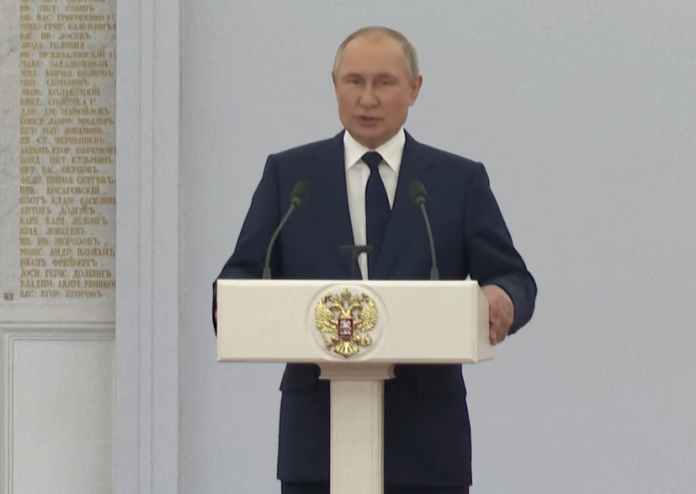Questions about Russian President Vladimir Putin’s health remained unanswered Tuesday, as his face seemed puffy during a ceremony honoring the country’s Beijing Olympians.
Putin was considerably fat as he posed for photos with figure skater Kamila Valieva, whose Winter Games campaign was tarnished by a doping scandal.
While speaking at the awards event, Putin stated that Russian and Belarusian paralympians were discriminated against because of their nationality after Russia invaded Ukraine on February 24.
Putin’s physical condition has been the subject of much curiosity since a video published by the Kremlin last week showed him looking bloated and clumsily holding a table for support during a meeting with Defense Minister Sergei Shoigu.
The strongman also seemed unstable at an Orthodox Easter service in Moscow, however other sources claimed he wasn’t even there and that the Kremlin doctored the film.
On Monday, the White House refused to comment on Putin’s health.
When questioned about the allegations, White House press secretary Jen Psaki said she couldn’t provide any opinion or remark on Putin’s health from here.
Visegrad 24 uploaded a video of him before a recent meeting with Belarusian President Alexander Lukashenko on Twitter. He is shown holding up his shaking hand till he crushes it against his chest, then clumsily approaching Lukashenko and hugging him.
Last week’s film looked to support up prior rumors that Vladimir Putin had Parkinson’s disease, according to former UK lawmaker Louise Mensch.
According to some sources, Putin has lately had 35 private meetings with a cancer specialist and has become so concerned about his health that he has turned to unorthodox treatments.
According to Russian investigative site The Project, Russian President Vladimir Putin is claimed to bathe in blood collected from deer antlers that are chopped off when still developing and full of new blood.
Putin’s health is not in question, according to the Kremlin.
On Tuesday, Putin posed for a selfie with Valieva after claiming that her performances could not have been achieved without the use of any prohibited medications.
After being authorized to participate despite testing positive for a prohibited drug in late December, the athlete, who turned 16 on Tuesday, lost out on a medal in the women’s singles event at the Beijing Winter Olympics.
Her test results were first published on February 8, a day after she had already assisted the Russian Olympic Committee in winning the team event.
Despite her young age, the Court of Arbitration for Sport permitted her to continue competing in the Games, however without clearing her of doping. Valieva finished fourth in the individual final after falling many times.








